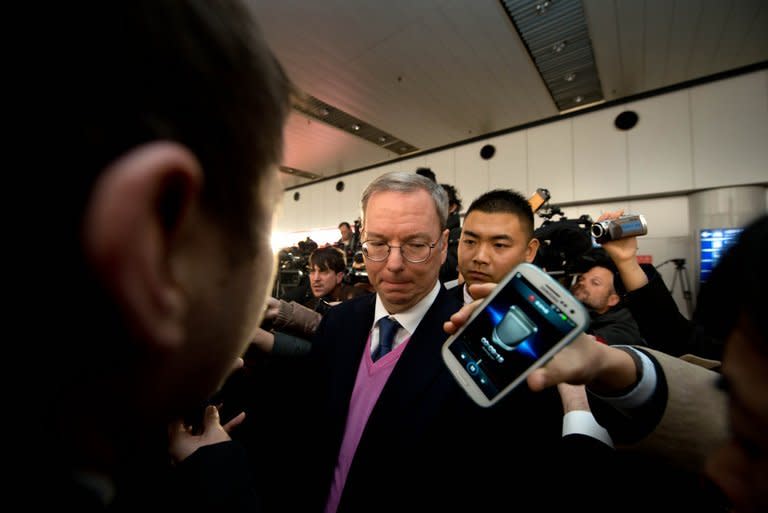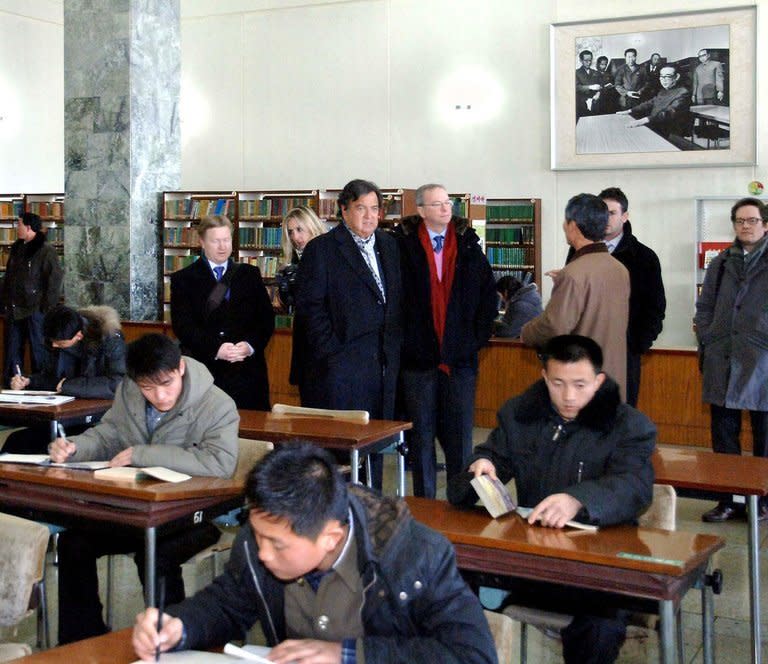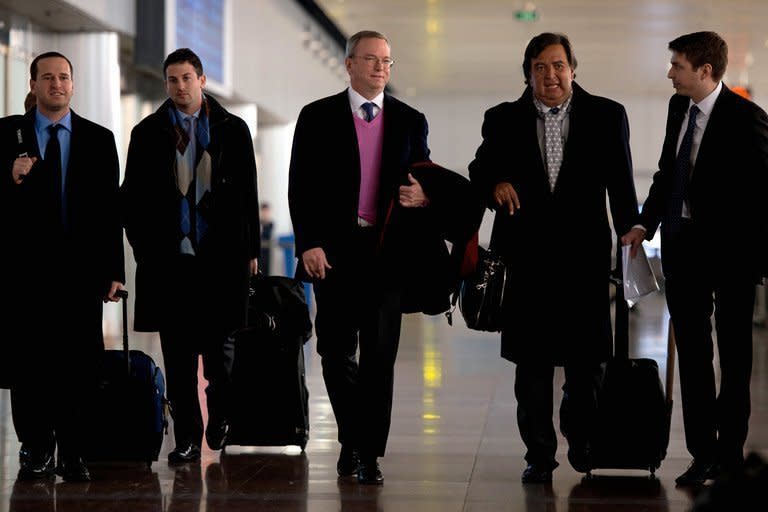Google's Schmidt urges N. Korea Internet freedom
Google chairman Eric Schmidt said Thursday he had told North Korea it would not develop unless it embraces Internet freedom, as he returned from a controversial visit to the communist state. Bill Richardson, the former US ambassador to the United Nations who led the trip, said he called on Pyongyang to adopt a moratorium on ballistic missile and nuclear tests following its widely criticised rocket launch last month. Talks were also held about an American citizen who is being detained in the country, he told reporters at Beijing airport, after speculation that he could return with the man, Kenneth Bae. Efforts to "strongly urge" North Korea, a highly secretive and tightly-controlled country, to increase the use of the Internet were "the main success of the visit", the former New Mexico governor said. Schmidt said he told North Korean officials they should open up the country's Internet "or they will remain behind". "As the world becomes increasingly connected, their decision to be virtually isolated is very much going to affect their physical world, their economic growth and so forth, and it will make it harder for them to catch up economically," Schmidt said. "Once the Internet starts, citizens in a country can certainly build on top of it. The government has to do something. It has to make it possible for people to use the Internet which the government in North Korea has not yet done." The North has a domestic Intranet service with a very limited number of users. Analysts say access to the Internet is for the super-elite only, meaning a few hundred people or maybe 1,000 at most. Last week in a surprise New Year address North Korean leader Kim Jong-Un said improving the economy through science and technology was a key goal. But experts said Internet freedom in the tightly controlled country was a distant possibility. "Most people in North Korea do not know what is going on in the outside world, so to have access to this through the Internet would be a shock to the system," said Brian Bridges, of Hong Kong's Lingnan University. The US State Department had voiced concern about the trip, saying it was ill-timed in the wake of the North's rocket launch. Pyongyang said its aim was to put a scientific satellite into orbit, but Washington and other nations called it a disguised ballistic missile test. "We strongly urged the North Koreans to proceed with a moratorium on ballistic missiles and possible nuclear test," Richardson said. The delegation did not meet leader Kim but had a "series of very frank discussions" with officials on "the current level of tension in the peninsula", he said, adding: "The North Koreans need to temper their nuclear development." Richardson has been to the North several times in the past two decades and has been involved in negotiating the release of US citizens detained there. During the latest trip there were discussions about Bae, an American of Korean descent who was arrested in November, but the delegation did not meet him personally as he was being held too far from Pyongyang, Richardson said. "We were informed that his health was good and that the judicial proceedings would start soon. That is encouraging," he added. Bae, 44, entered the country as a tourist, according to the North's official news agency, which said he had admitted committing a crime against the state. The official agency has described the high-profile visitors as a Google delegation. Richardson last visited the North in 2010 when he met its chief nuclear negotiator to try and ease tensions after the country shelled a South Korean border island.




